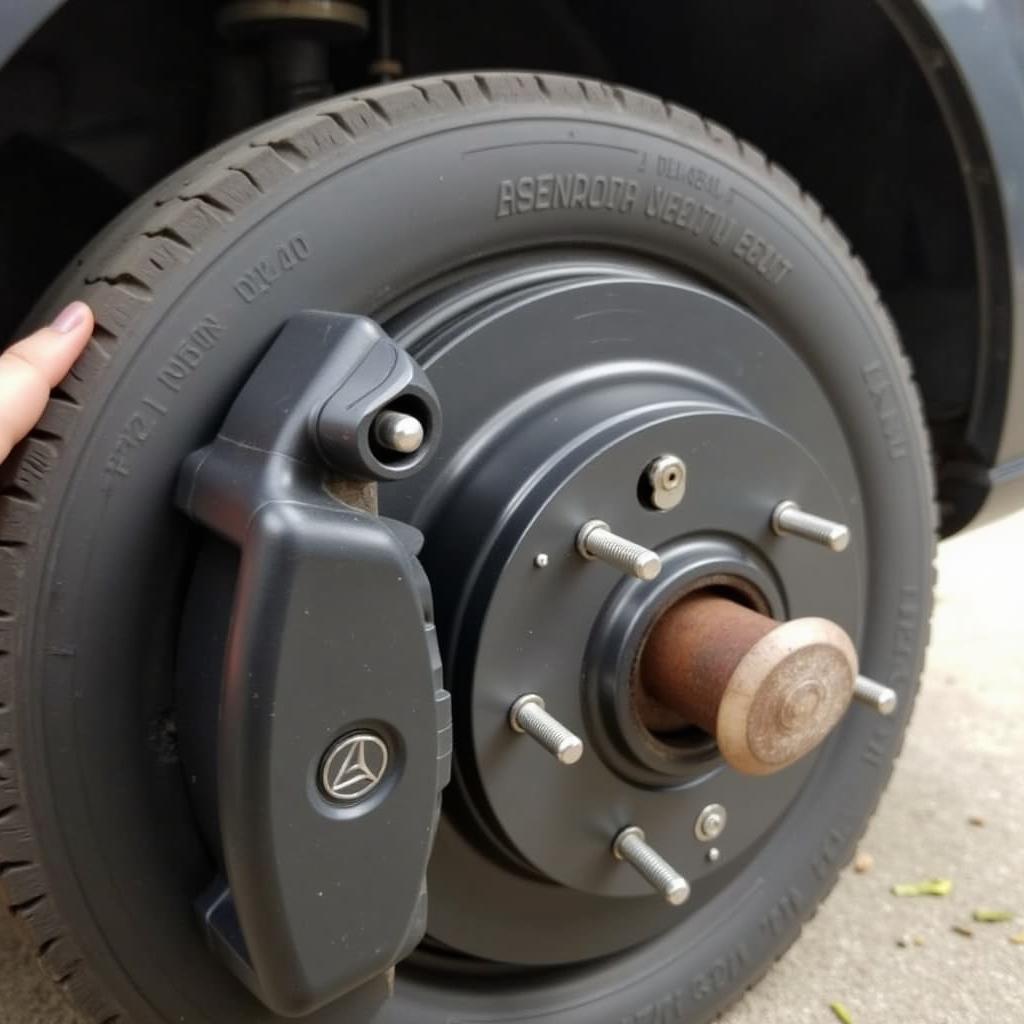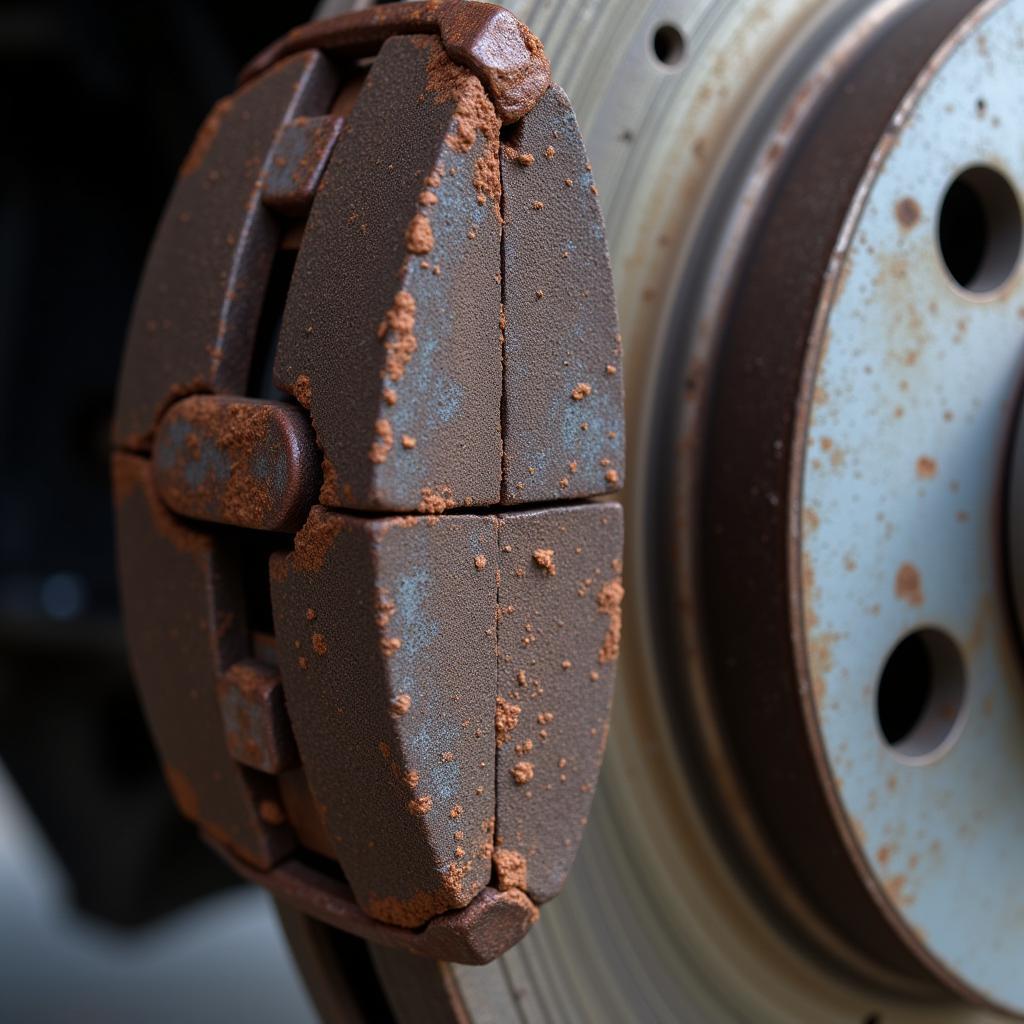Seeing a brake warning light on your car dashboard can be a scary sight. It’s a clear indication that something is wrong with your braking system, and ignoring it can lead to serious consequences. The good news is, in many cases, the problem can be easily fixed. This guide will walk you through the common causes of a brake warning light, how to troubleshoot the issue, and when to take your car to a mechanic.
What Does the Brake Warning Light Mean?
The brake warning light is a crucial indicator that alerts you to potential issues within your vehicle’s braking system. It’s typically a red exclamation point or a stylized brake caliper symbol located on your dashboard. When this light illuminates, it signifies a problem with one or more components that contribute to the effectiveness of your brakes.
Common Causes of a Brake Warning Light
Here are some of the most frequent culprits behind a brake warning light:
- Low Brake Fluid: This is the most common cause. Your brake fluid level should be checked regularly. Low fluid can indicate a leak, which needs immediate attention.
- Worn Brake Pads: If your brake pads are worn down, the sensor in your brake system will trigger the warning light.
- Faulty Brake Pad Sensor: Sometimes, the sensor itself can malfunction and trigger the light even if the brake pads aren’t worn down.
- Parking Brake Engaged: An easy one to miss! Make sure your parking brake is completely disengaged.
- Electronic Brake System Error: More modern vehicles have electronic brake control systems. A malfunction in these systems can also trigger the warning light.
- Other Issues: While less common, other problems can cause the warning light to illuminate, such as a faulty brake master cylinder, brake lines, or a problem with the ABS system.
Troubleshooting a Brake Warning Light
Before you rush to the mechanic, here are some simple checks you can do at home:
- Check the Brake Fluid Level: Open your hood and locate the brake fluid reservoir (usually a clear plastic container). The fluid level should be between the “MIN” and “MAX” markings.
- If the fluid is low: It’s important to find out where the leak is. Look for signs of fluid leaks around the brake calipers, lines, and master cylinder.
- Check the Parking Brake: Ensure your parking brake is fully released.
- Visual Inspection: Look for any signs of damage or wear on your brake pads, rotors, or brake lines.
Important Note: If you hear unusual noises, grinding, or experience a spongy brake pedal, it’s imperative to avoid driving the vehicle and seek professional assistance immediately.
When to See a Mechanic
While some issues can be addressed at home, it’s best to have your car inspected by a mechanic if:
- The brake warning light remains on after checking fluid levels and the parking brake.
- You notice any unusual braking noises.
- You experience a spongy brake pedal.
- You see signs of brake fluid leaks.
- You’re unsure about the issue.
Addressing the Issue: Your Options
A mechanic will diagnose the problem and provide you with a solution. Common solutions include:
- Brake Fluid Replacement: If the brake fluid is low, the mechanic will top it off and inspect for leaks.
- Brake Pad Replacement: Worn brake pads are usually a straightforward replacement.
- Brake System Repair: If there is a leak or other more complex issue, the mechanic will repair or replace the faulty component.
FAQs
Q: Can I drive my car with the brake warning light on?
A: It is generally not safe to drive your car with the brake warning light on. If the issue isn’t addressed promptly, it can lead to brake failure and potential accidents.
Q: How much does it cost to fix a brake warning light?
A: The cost of repair varies depending on the issue and the complexity of the repair. A simple brake fluid top-off might be inexpensive, while a brake system repair could be more costly.
Q: Can I ignore the brake warning light for a while?
A: No, you should not ignore the brake warning light. It is a critical signal that something is wrong with your braking system, and delaying the repair can lead to serious consequences.
Q: What happens if I don’t get my brake warning light checked?
A: Ignoring a brake warning light can lead to brake failure, which can result in dangerous situations, accidents, and potentially even severe injury.
Remember: Your brakes are the most important safety feature on your car. Don’t delay in getting any brake warning light checked out.


